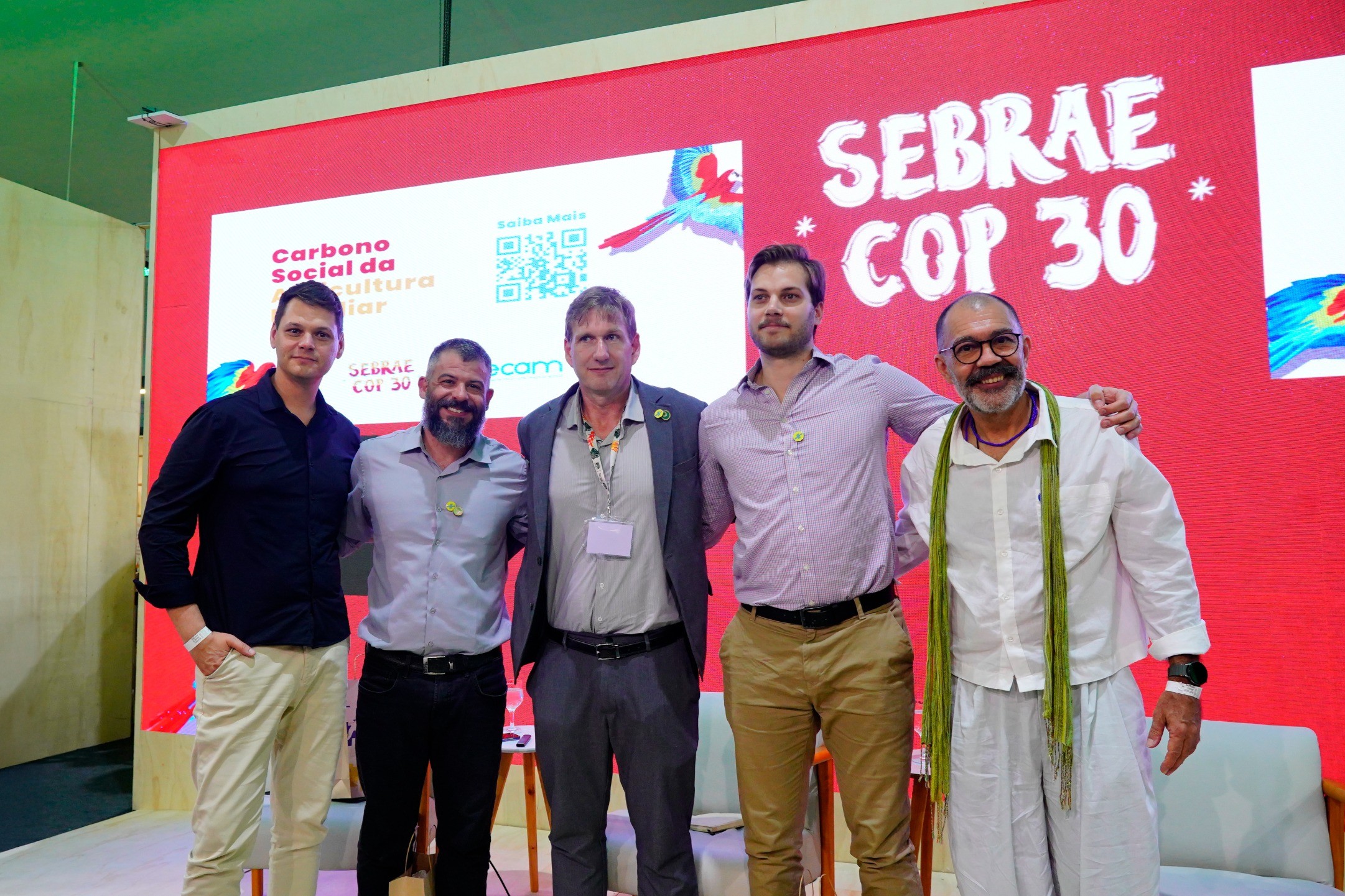Social Carbon project rewards small sustainable businesses in Brazil
Sebrae initiative launched at COP integrates technology, green finance, and community empowerment to strengthen the voluntary carbon market

By Sebrae
At a moment when the global carbon market seeks greater transparency and social impact, Sebrae presents the "Social Carbon" project at COP30 in Belém (PA). This pioneering initiative converts the sustainable practices of small producers and Amazonian communities into traceable carbon credits. The official launch took place on November 18 at Sebrae’s dedicated stand in the Green Zone. The project combines economic inclusion, vital conservation efforts, and tangible income generation, with a clear focus on recognizing and rewarding those who are actively preserving the forest.
The pilot project, launched earlier this year, involves 150 family farmers across 15,000 hectares, of which 8,500 are dedicated to sustainable management, agroforestry systems, and conserved forest areas. Sebrae provides technical training, value chain mapping, and mechanisms to ensure that all revenue generated from credit sales flows directly back to the communities. "Social carbon is a path to inclusive development that recognizes those who care for the forest", states Décio Lima, President of Sebrae.
A cornerstone of the project is the WebGIS territorial intelligence platform, which integrates socio-environmental, production, and carbon data. The tool maps the activities of farmers and communities, connecting these sustainable initiatives to markets, financing opportunities, and supportive public policies. According to Bruno Quick, Sebrae’s Technical Director, "This model acts as a bridge between those who preserve and those seeking to offset their emissions."
Developed in partnership with the Amazon Conservation Team (Ecam), ReSeed, and Social Carbon, this model is designed for replicability and holds potential for expansion into other biomes, respecting the unique characteristics of each territory. During COP30, Sebrae is building new international partnerships to expand the project and strengthen Brazil’s role in creating an inclusive and traceable carbon market.
